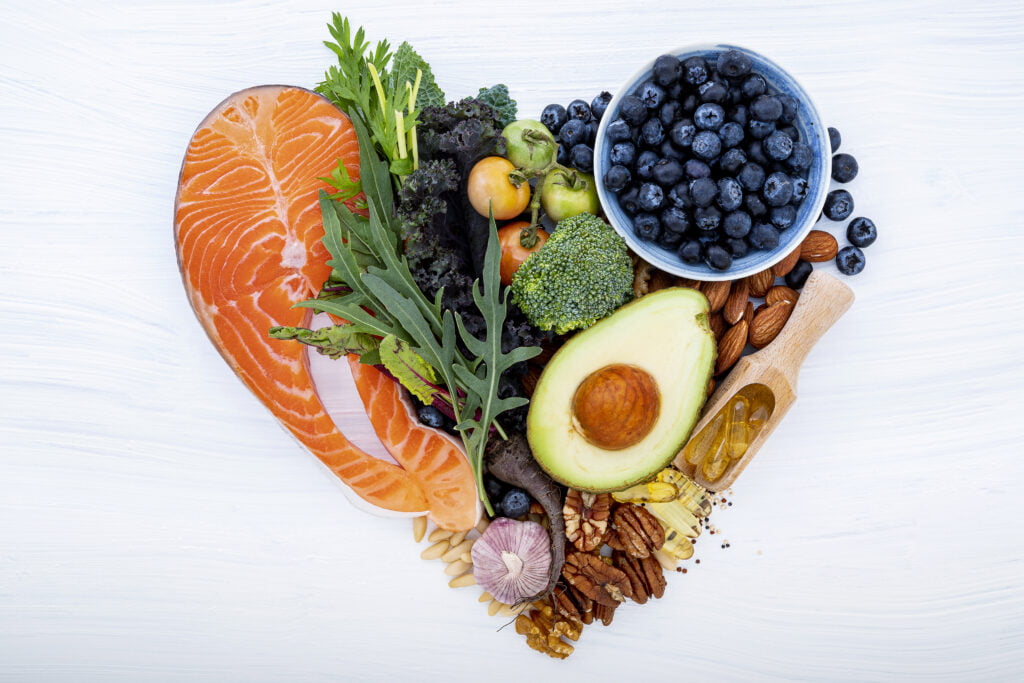Tips for Reducing Cholesterol
High cholesterol is a serious problem that affects millions of Americans. What is cholesterol? It’s a soft, waxy substance made by your liver. You need it to digest food and make hormones. But when you have too much of it in your blood, you’re at risk for heart disease and other health problems. But there’s good news: there are ways to reduce your cholesterol and improve your health. Here are some tips for reducing cholesterol and improving your health.

Cholesterol and its Effects
Cholesterol is a type of lipid found in the cell membranes of all body tissues. It is required for the synthesis of vitamin D and hormones like testosterone and estrogen. The liver produces about 75% of the cholesterol we need and the rest comes from the diet.
We all know that too much cholesterol is bad for our health. But did you know that there are good and bad types of cholesterol? LDL (low-density lipoprotein) cholesterol is the “bad” type that can build up on the walls of your arteries and increase your risk of heart disease. HDL (high-density lipoprotein) cholesterol is the “good” type that helps remove LDL from your arteries.
Cholesterol isn’t all bad. In fact, it’s essential for good health. But high levels of LDL cholesterol can lead to a buildup of plaque in your arteries, which can cause heart disease and other problems. The American Heart Association recommends that adults with an average risk for heart disease get their total cholesterol level below 200 mg/dL (5.2 mmol/L). If you have heart disease, your goal is to get it below 160 mg dL (4.1 mmol L).
Step One: Eat Healthy Fats
You know what they say, “An apple a day keeps the doctor away.” Well, turns out that’s not the only fruit you should be eating to stay healthy. Scientists have found that certain fats found in avocados, nuts, and olive oil can help reduce bad cholesterol levels in your blood.
So, next time you’re at the grocery store, be sure to pick up some of these healthy fats to help keep your heart happy and your cholesterol levels down.
Step Two: Avoid Unhealthy Fats
If you have high cholesterol, you may be wondering which unhealthy fats you should avoid. Here are some of the worst offenders:
- Trans fats: These are found in processed foods like baked goods, crackers, and chips. They can also be found in margarine and vegetable shortening.
- Saturated fats: These are found in fatty cuts of meat, full-fat dairy products, and tropical oils like coconut oil and palm kernel oil. These are found in processed foods like baked goods, crackers, and chips. They can also be found in margarine and vegetable shortening.
Step Three: Eat Soluble Fiber
When it comes to reducing cholesterol, soluble fiber is your best friend. This type of fiber helps reduce cholesterol by binding with it in the digestive system and preventing its absorption into the bloodstream. In addition to reducing cholesterol, soluble fiber has also been shown to improve heart health and regulate blood sugar levels.
Sources of soluble fiber include
- Oats
- Apples
- Barley and other whole grains
- Beans and legumes, such as black beans, edamame, lentils, lima beans, peas, and soybeans Step Four: Eat More Plant-Based Protein Eating a
Step Four: Exercise Regularly
When it comes to reducing cholesterol, regular exercise is key. Just 30 minutes of moderate exercise a day can help to lower your cholesterol and improve your heart health. But what exactly is moderate exercise? Moderate exercise is any activity that gets your heart rate up and keeps it there for a sustained period of time. So, if you’re looking to reduce your cholesterol, get up and get moving!
Step Five: Lose Weight if Overweight

When it comes to weight loss and reducing cholesterol, there are many different options available. However, not all of these options are created equal. Some methods are more effective than others, and some can even be dangerous. So, how do you know which method is right for you?
The first step is to understand the basics of weight loss and cholesterol reduction. Then, you can start to research the different options and make an informed decision about which one is best for you. Always consult with your doctor before changing your exercise regimen.
Step Six: Quit Smoking
Smoking is terrible for your health. It’s common knowledge that smoking causes lung cancer, but did you know that it also affects your cholesterol levels?
High cholesterol is a risk factor for heart disease, and smoking is one of the worst things you can do for your heart. Cigarette smoke damages the walls of your blood vessels, making them more likely to become blocked. This increases your risk of having a heart attack or stroke.
Step Seven: Limit Alcohol Intake
We all know that alcohol isn’t the healthiest of substances. But did you know that it can also have an effect on your cholesterol levels? Alcohol can actually increase your levels of “bad” cholesterol, which can lead to a whole host of health problems. So if you’re trying to keep your cholesterol in check, it might be best to limit your alcohol intake.
It’s also important to remember that consuming too much alcohol can lead to serious health problems, including high blood pressure and liver damage.
Step Eight: Manage Stress Levels
Stress is a part of life. But how does it affect our cholesterol levels? While some people may think that stress raises their cholesterol, the truth is, it’s more complicated than that.
It turns out that stress may be wreaking havoc on our cholesterol levels. According to some researchers, when we’re stressed, our bodies release a hormone called cortisol. Cortisol in turn can raise our LDL “bad” cholesterol and triglyceride levels while simultaneously lowering our HDL “good” cholesterol levels. This unhealthy mix can lead to heart disease, strokes, and other problems.
Conclusion: The Benefits of Reducing Cholesterol
In conclusion, the benefits of reducing cholesterol are numerous. By reducing your cholesterol, you can improve your cardiovascular health, reduce your risk of heart disease and stroke, and live a healthier life overall. So, what are you waiting for? Start making changes to your diet and lifestyle today to reduce your cholesterol levels and improve your health.






